You are on CGS' Legacy Site.
Thank you for visiting CGS! You are currently using CGS' legacy site, which is no longer supported. For up-to-date information, including publications purchasing and meeting information, please visit cgsnet.org.
General Content
Graduate school applications were up 2.2 percent year over year in 2018, and first-time enrollments increased 2.1 percent across institution types, according to a new report by the Council of Graduate Schools and the Educational Testing Service.
The groups were especially pleased to see higher increases in first-time enrollments among people of color, including Latinx (6.8 percent), black (3.5 percent), Asian (6.2 percent) and Native American students (8.3 percent). Over all, 24.1 percent of all first-time enrollees who were U.S. citizens and permanent residents in fall 2018 were underrepresented minorities.
On October 4, CGS joined an amicus brief submitted by 43 other higher education associations. The brief, which was led by the American Council on Education (ACE), was submitted to the Supreme Court urging that the justices uphold the legality of the Deferred Action for Childhood Arrivals (DACA) program. The court will hear oral arguments on November 12 related to a set of three court cases challenging the Trump Administration’s decision to end DACA, first announced in September 2017. The amicus brief expresses support for the courts’ decision to currently keep DACA in place, highlighting how rescinding the policy would be extremely detrimental for Dreamers, their peers, institutions of higher education, and the nation writ large. For additional information, read ACE’s summary here.
PRESS RELEASE
EMBARGOED UNTIL: October 8, 2019, 12:01 a.m. EDT
CONTACT: Katherine Hazelrigg / (202) 461-3888 / khazelrigg@cgs.nche.edu
Washington, DC — Today the Council of Graduate Schools (CGS) reported that graduate applications (2.2%) and first-time graduate enrollment (2.1%) increased overall and across all institution types (Doctoral Highest, Higher, and Moderate Research Institutions and Master’s Colleges and Universities) for Fall 2018. While the overall numbers are on the rise, first-time graduate enrollment of international students continues to decline (-1.3%). The data are part of the latest CGS/GRE Graduate Enrollment & Degrees: 2008-2018 report.
“The increases in application and first-time enrollment rates for Fall 2018 after last year’s slowdown is encouraging news for graduate education. We’re especially pleased to see increases in first-time enrollment among Latinx (6.8%), Black/African American (3.5%), Asians/Pacific Islander (6.2%), and American Indian/Alaska Native (8.3%) graduate students,” said CGS President Suzanne Ortega. “However, we do take note of the continued decline in the number of international students pursuing graduate education in the U.S. As we move to an increasingly globalized economy and workforce, domestic students benefit from training alongside international students, who also make important contributions to graduate education and research and the U.S. economy.”
Enrollments Continue to Align with Fastest Growing Fields
Enrollment trends by broad field of study are consistent with data from the last two years. Between Fall 2017 and Fall 2018, the largest one-year gains in first-time enrollment by broad field of study were in mathematics and computer sciences (4.3%), health sciences (3.3%), and education (3.2%). In contrast, applications and first-time graduate enrollment in engineering over the same period declined 6.9% and 4.6%, respectively. These results are consistent with findings from CGS’s International Graduate Applications and Enrollment: Fall 2018 survey, indicating that the decline in engineering enrollment is largely driven by a decrease in international students.
“Between Fall 2008 and Fall 2018, first-time graduate enrollment in mathematics and computer sciences has increased 11.0% and health sciences by 6%. Based on our data, these are the fastest-growing fields in graduate education and many jobs within them require advanced degrees,” said Ortega. “The steady growth in first-time enrollment in these fields indicates graduate education’s continued alignment with recent Bureau of Labor Statistics data on employment projections. These findings suggest that incoming students recognize the expanding employment opportunities in these growing fields, as well as the role they play in driving innovation.
Institutions responding to the CGS/GRE Survey of Graduate Enrollment & Degrees for Fall 2018 enrolled more than 1.8 million graduate students. Nearly three-quarters (73.9%) of total graduate enrollment was in master’s programs. Over one million of those graduate students, or 58.2%, were women. The three largest broad fields of study (business, education, and health sciences) were also the fields with the largest proportions of part-time graduate students (Business: 62.9%; Education: 51.2%; Health Sciences: 41.5%).
Other report findings are summarized below.
Findings by Broad Field
- By broad field of study, the largest number of total applications for Fall 2018 were in engineering (284,512), business (278,775), and health sciences (270,580). These three broad fields alone accounted for 40.7% of all graduate applications for which the intended field of study was known in Fall 2018.
- Mathematics and computer sciences (4.3%) and health sciences (3.3%) reported the largest one-year gains in first-time graduate enrollment between Fall 2017 and 2018.
- The one-year change in first-time graduate enrollment in engineering was -4.6%, compared to -3.8% between Fall 2016 and 2017.
Findings by Degree Level
- The largest one-year percentage increases in doctoral applications were in mathematics and computer sciences (18.6%) and public administration and services (12.9%).
- The largest one-year percentage increases in the number of master’s applications were in social and behavioral sciences (9.3%) and mathematics and computer sciences (5.4%).
- Of the graduate certificates awarded in the 2017-2018 academic year, 62.0% were from public institutions, 33.7% from private, not-for-profits, and 4.4% from private, for-profit.
Findings by Student Demographics
- In Fall 2018, approximately 24.1% of all first-time U.S. citizens and permanent resident enrollees were underrepresented minorities. American Indian/Alaska Native, Black/African American, and Hispanic/LatinX first-time graduate students remain particularly underrepresented in STEM fields.
- In Fall 2018, the majority of first-time graduate students at all degree levels were women – 59.7% at the master’s degree and certificate level and 54.4% at the doctoral level.
- Among first-time graduate enrollment, 80.2% were U.S. citizens and permanent resident graduate students in the Fall of 2018 and about 19.8% were international.
- International students comprised the largest share of first-time graduate students in mathematics and computer sciences (55.6%), followed closely by engineering (51.0%).
About the report
Graduate Enrollment and Degrees: 2008 to 2018 presents the findings of an annual survey of U.S. graduate schools, co-sponsored by CGS and the Graduate Record Examinations (GRE) Board. It is the only annual national survey that collects data on graduate enrollment by all fields of study and is the only source of national data on graduate applications by broad field of study. The report includes responses from 589 institutions and presents statistics on graduate applications and enrollment for Fall 2018, degrees conferred in 2017-18, and trend data for one-, five- and ten-year periods.
###
The Council of Graduate Schools (CGS) is an organization of approximately 500 institutions of higher education in the United States and Canada engaged in graduate education, research, and the preparation of candidates for advanced degrees. The organization’s mission is to improve and advance graduate education, which it accomplishes through advocacy in the federal policy arena, research, and the development and dissemination of best practices.
.png)
Roundtable Members
Suzanne Ortega
President, Council of Graduate Schools (CGS)
Stanley S. Litow
Employer Roundtable Chair
Professor and Innovator in Residence, Duke University
President Emeritus, IBM International Foundation
Lisa Amini
Director, IBM Research Cambridge
Charles R. Craig
Sr. Vice President - Science & Technology Director - Administration & Operations,
Corning Incorporated
Ken Eisner
Director, Learning Systems, Amazon
Richard Kurin
Distinguished Scholar and Ambassador-at-Large, Smithsonian Institution
Jose Lima
Vice President, Quality for the Restorative Therapies Group (RTG), Medtronic
Walt MacDonald
President and CEO, ETS
Marian Roberge
Chief People Officer, Global Human Resources, ProQuest
Christopher Valentino
Chief Strategy Officer, Peraton
Sean N. Woodroffe
Senior Executive Vice President and Chief People Officer, TIAA
For institutions ostensibly in the business of amassing knowledge, universities know remarkably little about what happens to their Ph.D. alumni once they leave graduate school. In an effort to fill that gap and help universities improve the career services they provide, the Council of Graduate Schools (CGS), through its PhD Career Pathways project, has been asking STEM (science, technology, engineering, and mathematics) and humanities Ph.D.s who are 3, 8, and 15 years past their degrees about their work lives.
For Immediate Release
September 27, 2019
Contacts:
American Educational Research Association
Tony Pals, tpals@aera.net
(202) 238-3235, (202) 288-9333 (cell)
Council of Graduate Schools
Katherine Hazelrigg, khazelrigg@cgs.nche.edu
(202) 461-3888
AERA and CGS Awarded NSF Grant to Advance Academic Support for Open Science
Washington, D.C., September 27, 2019 – The American Educational Research Association (AERA) and the Council of Graduate Schools (CGS) have received a collaborative grant from the National Science Foundation to convene higher education leaders, education researchers, and related scientists to advance academic support for open science.
A multi-day conference to be held in summer 2020 at the AERA Convening Center will bring together approximately 30 leaders with collective expertise in scientific productivity, science professions, and higher education institutions. The goal of this intensive working conference is to address what counts as open science productivity and quality in non-traditional research products (e.g., data sharing, replication studies, registered reports). It is expected that the meeting will lead to actionable strategies that can be “tested” in institutions interested in rethinking performance metrics and modes of assessing scientific productivity beyond publication in highly ranked journals.
AERA Executive Director Felice J. Levine and CGS President Suzanne T. Ortega will serve as co-chairs of the conference, uniting their longstanding interest in the academic and scientific workforce, issues of access and opportunity, transformation of scientific workforce demands in STEM fields, and what counts as valued and valuable scholarly productivity for this collaborative initiative. Their shared ambition for this initiative is to foster deeper consideration of measures of scholarly productivity in the institutions where the next generation of researchers are being trained, where science is organized, and where open science products are produced.
“Over the last decade, discussions about open science and the opportunities and barriers of expanded access to and transparency in research have demonstrated the clear public interest in enabling a climate of access to information, including the underlying data, materials, measurements, and tools that warrant research,” said AERA Executive Director Felice J. Levine. “Through our partnership with CGS, this conference will advance the understanding of the impact of intellectual contributions of scientific research outcomes and products in non-traditional forms.”
CGS President Suzanne T. Ortega added: “We hope this conference will affect the trajectory of the scientific enterprise at large by better articulating how different forms of research outcomes and products may be valued and appreciated. We want to address how we measure the impact and intellectual contribution of research outcomes with non-traditional forms of scientific products, such as research data, parallel to more traditional deliverables. Although this initiative emphasizes science, it is directly applicable to the humanities, and we intend to pursue funding to support that work, as well.”
AERA and CGS plan to convene an advisory committee to provide guidance on the conference plan, agenda, and participants. Conference participants will represent a diversity of expertise, institutional affiliations, regional representation, and demographics.
# # #
About AERA
The American Educational Research Association (AERA) is the largest national interdisciplinary research association devoted to the scientific study of education and learning. Founded in 1916, AERA advances knowledge about education, encourages scholarly inquiry related to education, and promotes the use of research to improve education and serve the public good. Find AERA on Facebook, Twitter, and Instagram.
About CGS
The Council of Graduate Schools (CGS) is an organization of approximately 500 institutions of higher education in the United States and Canada engaged in graduate education, research, and the preparation of candidates for advanced degrees. The organization’s mission is to improve and advance graduate education, which it accomplishes through advocacy in the federal policy arena, research, and the development and dissemination of best practices.
.png)
Roundtable Members
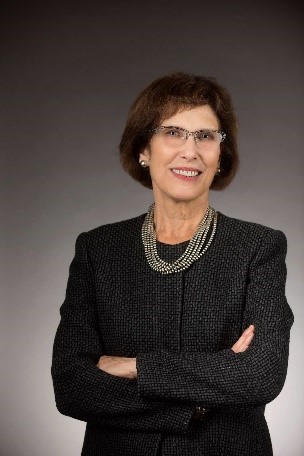 |
Suzanne Ortega serves as president of the Council of Graduate Schools (CGS). The only U.S. higher education association devoted solely to graduate study, CGS has nearly 500 U.S. and Canadian members and 28 international affiliates. A sociologist by training, Ortega’s research focuses on social inequality, mental health, and graduate education. Prior to assuming her current position, she served as the University of North Carolina Senior Vice President for Academic Affairs (2011-14). Previous appointments included the Executive Vice President and Provost at the University of New Mexico, Vice Provost and Graduate Dean at the University of Washington, and the University of Missouri. Ortega's masters and doctoral degrees in sociology were completed at Vanderbilt University. She has served on review panels for NSF and NIH and has been the principal investigator or co-investigator on grants totaling more than $12 million in state, federal, and private foundation funds. Ortega also has served on a number of professional association boards and committees, including the Graduate Record Exam (GRE), the National Academies of Science Committee on Revitalizing Graduate STEM Education for the 21st Century, and the NSF’s Human Resources Expert Panel. |
.png) |
Chair, CGS Employer Roundtable
Earl Lewis is the Thomas C. Holt Distinguished University Professor of history, Afroamerican and African Studies, and Public Policy and director of the Center for Social Solutions at the University of Michigan. From March 2013-2018, he served as president of The Andrew W. Mellon Foundation. An author and esteemed social historian, he is past President of the Organization of American Historians. A fellow of the American Academy of Arts and Sciences (2008) and the recipient of eleven honorary degrees, he has held faculty and administrative appointments at Michigan (1989-2004) and the University of California, Berkeley (1984-89). From 2004-2012, he served as Emory University’s Provost and Executive Vice President for Academic Affairs and the Asa Griggs Candler Professor of History and African American Studies. In addition to prior service on a number of nonprofit and governmental boards, Lewis chairs the board of Regents at Concordia College, is a trustee of ETS, and a director of 2U and the Capital Group, American Funds. |
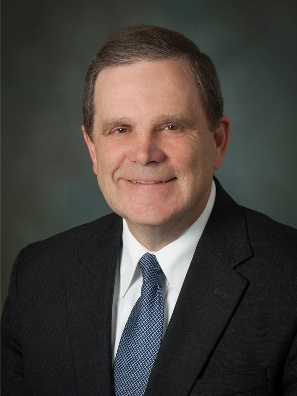 |
Charles R. Craig is senior vice president, science & technology, administration & operations with Corning Research & Development Corporation. In this position, he leads the operations chief of staff responsibilities for the chief technology officer and the administrative and operations functions of science & technology. Since 1990, he has been chief of staff for five consecutive CTOs. Craig joined Corning in 1974 as a senior chemist and has 45 years of experience in technology management in various leadership positions. Craig received his bachelor’s degree in chemistry from Dickinson College, and completed four years of graduate studies and research in analytical chemistry and materials science at the University of Minnesota. Craig is Corning’s representative on the Board of Trustees for Clarkson University and is a member of the Executive Committee. He is a member of the College Council at SUNY Alfred State College. He serves as chairman of the board of trustees for IncubatorWorks – the organization responsible for the Ceramics Corridor incubators in Alfred and Corning, NY. |
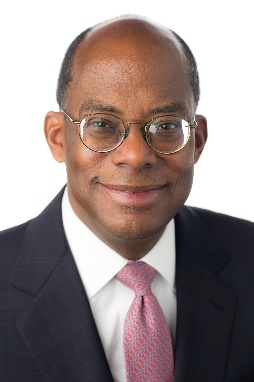 |
Roger W. Ferguson, Jr., is president and chief executive officer of TIAA, a Fortune 100 financial services organization. Ferguson is the former vice chairman of the Board of Governors of the U.S. Federal Reserve System. He represented the Federal Reserve on several international policy groups and served on key Federal Reserve System committees, including Payment System Oversight, Reserve Bank Operations, and Supervision and Regulation. Prior to joining TIAA in April 2008, Ferguson was head of financial services for Swiss Re, Chairman of Swiss Re America Holding Corporation, and a member of the company’s executive committee. Ferguson is a member of the Smithsonian Institution’s Board of Regents and serves on the New York State Insurance Advisory Board. He is a fellow of the American Academy of Arts & Sciences and co-chairs its Commission on the Future of Undergraduate Education. He serves on the boards of Alphabet, Inc.; General Mills, Inc.; and International Flavors & Fragrances, Inc. |
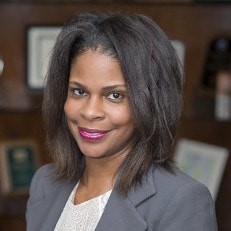 |
Betty Fleurimond is a managing director in Deloitte’s Higher Education practice with responsibility for market leadership and client relations, nationally. With 20 years of professional experience, she has a strong and proven track record of successfully driving large-scale and complex business strategies across technology, operations, cybersecurity, and strategy and change leadership. Under Fleurimond’s leadership, Higher Education earned the distinction of becoming a dedicated sector across all four of Deloitte businesses—Consulting, Advisory, Tax, and Audit. Today, Deloitte proudly serves more than 100 colleges and universities across the U.S., with an ever-increasing global network. Fleurimond also chairs the governing board of Deloitte’s Center for Higher Education Excellence, a research center located in Washington D.C., dedicated to scholarship and thought leadership in higher education. |
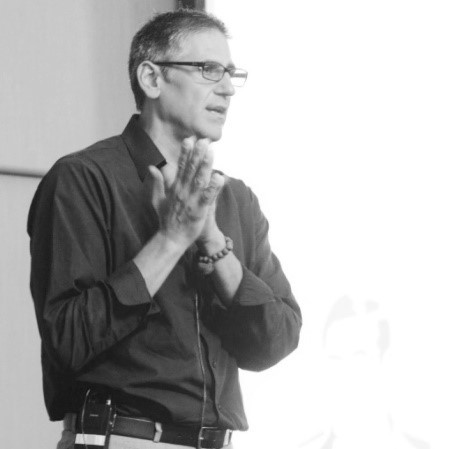 |
Phil Komarny is the vice president, innovation for Salesforce.com. Komarny has held multiple leadership roles both inside higher education as the Chief Digital Officer for The University of Texas System, as well as outside as the CEO of Robots and Pencils. He is an award-winning senior executive with a 20+ year track record of delivering innovative, high value solutions by aligning existing problems with emerging technologies. Komarny was the first technology leader to introduce the Apple iPad as a platform for business transformation. He has won the CIO100 for his work at Seton Hill University, grew Robots and Pencils to the 34th fastest growing technology company in 2015, and is a member of Constellation’s Business Transformation 150 (BT-150), an elite list that recognizes the top global executives leading business transformation efforts in their organizations. Komarny has also won multiple Apple Distinguished Program Award for the ‘iPad for Everyone’ initiative at Seton Hill University. |
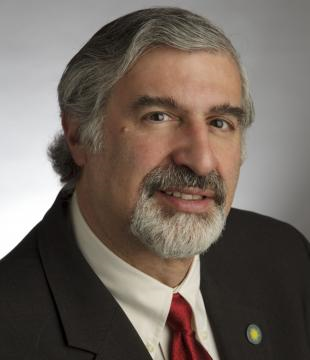 |
Richard Kurin is the Smithsonian Distinguished Scholar and Ambassador-at-Large, the first person so designated in the 171-year history of the Institution. As a member of the Smithsonian’s senior leadership team, Kurin focuses on strategic direction, institutional partnerships, public representation, philanthropic support, and special initiatives. Prior to his current role, Kurin served as acting provost and under secretary for museums and research from 2015, and from 2007, as under secretary for history, art, and culture. An anthropologist with a doctorate from the University of Chicago, Kurin specialized in the study of South Asia, conducting years of fieldwork in India and Pakistan. He has held Fulbright and Social Science Research Council fellowships, taught at the Johns Hopkins University School of Advanced International Studies, and authored six books, including Reflections of a Culture Broker: A View from the Smithsonian, Hope Diamond: The Legendary History of a Cursed Gem and the best-selling Smithsonian’s History of America 101 Objects. He is an elected fellow of the American Academy of the Arts and Sciences. |
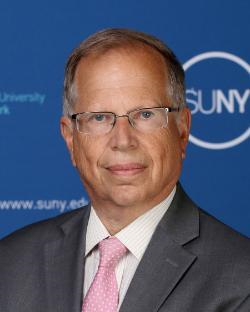 |
Stanley S. Litow is a professor at both Columbia and Duke University. At Duke University, he also serves as innovator in residence. Litow is the author of The Challenge for Business and Society: From Risk to Reward. He previously served as president of the IBM International Foundation and as deputy chancellor of schools for the City of New York. Before his service at IBM and the NYC public schools, he served as president and founder of Interface and as executive director of the NYC Urban Corps, operated out of the mayor’s office. He has served on multiple Presidential and Gubernatorial Commissions and on the SUNY Board of Trustees; he also serves on the board of Roosevelt House and the Citizens Budget Commission. Litow helped devise the innovative school to college to career program called, PTECH, as well as the IBM Corporate Service Corps, often referenced as the corporate version of the Peace Corps. He has received multiple awards for his community service, from organizations such as the Anne Frank Commission, the Martin Luther King Commission, and the Center for an Urban Future, as well as the Corning Award from the New York State Business Council. |
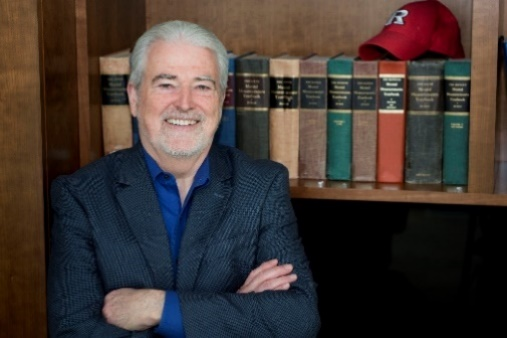 |
Walt MacDonald is president and CEO of Educational Testing Service (ETS). Over the course of his career, he has led nearly every major program — guiding each to grow and achieve the mission of ETS. MacDonald came to ETS in 1984. As a science assessment specialist, he redesigned the College Board's Advanced Placement® biology curriculum and exam. In the late '80s, he directed test development for the National Assessment of Educational Progress (NAEP), known as the "Nation's Report Card." Rising through the organization, he directed the Advanced Placement program through incredible growth, and later led the College Board®, Higher Education, K–12 and Teacher Licensure divisions of ETS. MacDonald was appointed executive vice president in 2009 and took on more responsibilities when chief operating officer was added to his title the following year. As COO, he was responsible for all of ETS's business and operational divisions. MacDonald earned an associate degree in science at Camden County Community College, a bachelor's degree in biology at Rutgers University in Camden, and a doctorate in ecology at Rutgers University in New Brunswick. |
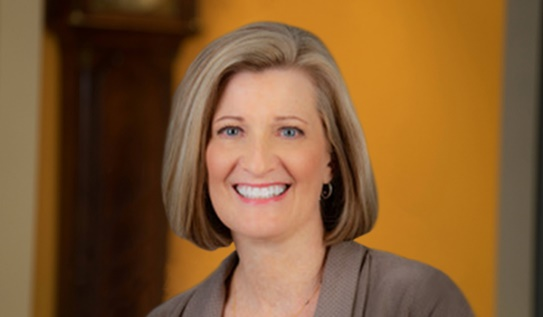 |
Marian Roberge is senior vice president of Global Human Resources with ProQuest, a global information-content and technology company, where she leads organizational development, talent acquisition, total rewards, talent management and development, and employee experience. Roberge has 25 years of U.S. and international HR experience. She previously led human resources at Plastipak, a global packaging and recycling company. She has also been a director and officer at the Abu Dhabi National Energy Company and Entertainment Publications. In addition to her HR responsibilities, Roberge has overseen other corporate functions including legal, accounting and finance, IT, operations and supply chain. Roberge holds a master’s degree in human resources and labor relations from Michigan State University and a bachelor’s degree in English and psychology, with honors, from the State University of New York at Potsdam. She is based in ProQuest’s Ann Arbor office. |
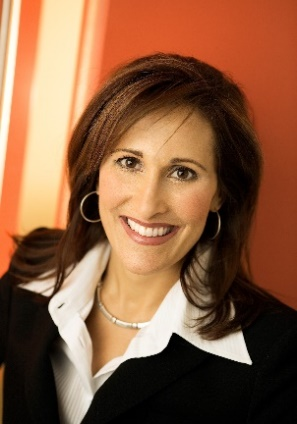 |
Lesli Rotenberg is chief programming executive and general manager, Children’s Media and Education at PBS. With a focus on kindergarten readiness, Rotenberg leads a cross-disciplinary team charged with content production, digital development, multi-platform asset distribution, licensing, educational product creation, and marketing and communications for PBS KIDS, the #1 children's educational media brand. Rotenberg leads the development and distribution of top-rated PBS KIDS media properties that help children ages 2-8 build science, literacy, math, critical thinking, and social-emotional skills, among others. Rotenberg oversees PBS’ efforts to support and empower PreK-12th grade educators, helping improve learning outcomes for students across America. Rotenberg has positioned PBS and local member stations as key partners for teachers through content, community, and professional learning resources tailored to their needs. An educational media expert, Rotenberg was named one of the nation’s top 15 “Women to Watch” by Advertising Age and invited to participate in the prestigious FORTUNE Most Powerful Women in Business Forum. Rotenberg has received numerous honors, including 28 Emmy Awards since 2015. |
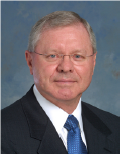 |
Ron Townsend currently leads Battelle’s Global Laboratory Operations business, where he oversees Battelle’s role in the management of seven national laboratories with annual R&D expenditures of $8B involving 28,000 lab staff; six national laboratories for the U.S. Department of Energy (Brookhaven National Laboratory, Idaho National Laboratory, Los Alamos National Laboratory, National Renewable Energy Laboratory, Oak Ridge National Laboratory and Pacific Northwest National Laboratory); and a laboratory for the U.S. Department of Homeland Security (National Biodefense Analysis & Countermeasures Center). He also manages Battelle’s role as an integrated subcontractor at Lawrence Livermore National Laboratory. From 1997 to January 2009, he served as the president of Oak Ridge Associated Universities (ORAU), a national consortium of doctoral-granting colleges and universities. Before joining ORAU, Ron served as Commandant of the Air Force Institute of Technology located at Wright-Patterson Air Force Base. He earned his bachelor’s and master’s degrees in mathematics from Kansas State University and completed his doctoral degree in atmospheric science at the University of Wisconsin-Madison. |
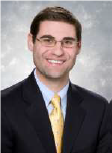 |
Chris Valentino currently serves as vice president of the Global Cyber Solutions business unit within Northrop Grumman Mission Systems’ Cyber and Intelligence Mission Solutions (CIMS) division. In this role, Valentino is responsible for the overall growth and program execution of the division’s global cyber business portfolio, as well as leadership of the company’s cyber campaign. Valentino has more than 20 years of domestic and global cyber expertise. He most recently served as the director of joint cyberspace programs for the Global Cyber Solutions business unit, where he was responsible for the development and delivery of full-spectrum cyberspace solutions. Prior to this, he served as the CIMS division’s director of strategy where he led the division’s strategic planning efforts, resource management, and initiatives for Northrop Grumman’s cyber and intelligence business. Valentino holds a bachelor’s of science degree and master’s of science degree in information systems from the University of Maryland Baltimore County (UMBC). Valentino serves on the UMBC College of Engineering and Information Technology (COEIT) external advisory board. |
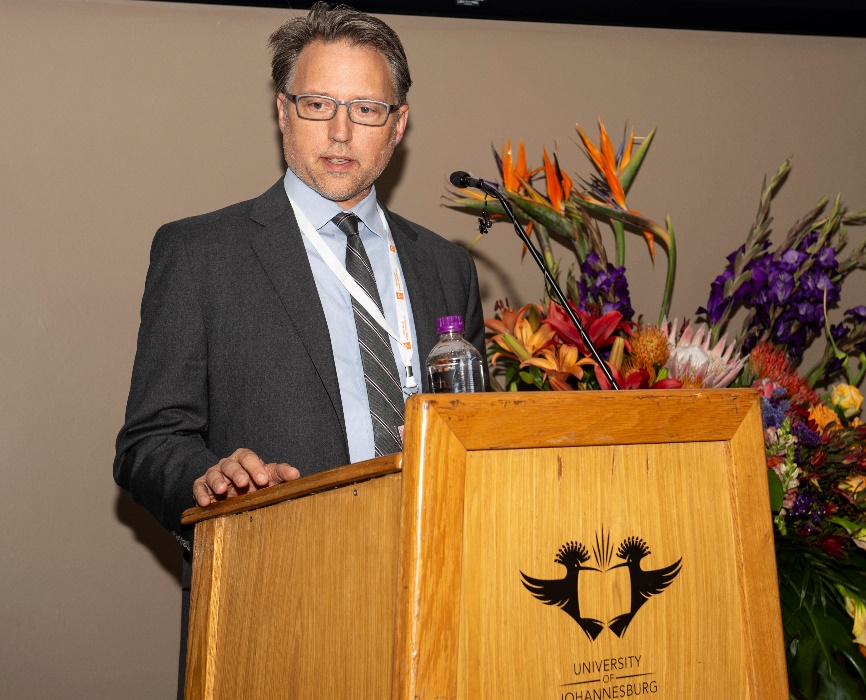 |
Chair, CGS Board of Directors (Ex-Officio)
Christopher Sindt has served as provost and dean of graduate studies at Lewis University since 2018. Prior to his tenure at Lewis, he served for 17 years at Saint Mary’s of California as Professor of English and in various administrative capacities, including as the graduate dean. In 2011-2012 he served as an American Council for Education Fellow. He is currently chair of the board of directors of the Council of Graduate Schools (CGS) and vice president of the board of directors of the Squaw Valley Community of Writers. Sindt earned a bachelor’s degree in English from the University of California, Los Angeles, and his master’s and doctoral degrees in English from the University of California, Davis. He is the author of two collections of poetry, The Bodies, and most recently, System and Population. He has been the recipient of numerous awards and fellowships for his poetry, including the James D. Phelan award and fellowships at the Macdowell Colony and the Blue Mountain Center. |
As a doctoral student in geosciences at The Pennsylvania State University, Andrew Shaughnassy’s research focuses on how agriculture, specifically nitrate, can alter the structure of bedrock. When farmers use excessive amounts of fertilizer to stimulate crop growth, a surplus of nutrients, including nitrate, can develop in surface and groundwater. Drinking water with high levels of nitrates can cause harm, particularly for infants.
Shaughnessy’s research examines the effects of the elevated levels of nitrate on the bedrock weathering process. In particular, he’s investigating how the introduction of the mineral pyrite (found in some bedrock) will do. He’s discovered that pyrite can actually remove nitrates from groundwater, a kind of natural cleaning process. “Depending on the concentration of pyrite in the bedrock, our research could provide an appropriate strategy for individual farmers’ land management methods,” Shaughnessy said.
Shaughnassy was awarded a 2019 NSF Graduate Research Fellowship to support his work. “I was very happy to receive the fellowship and felt it was a great honor to be selected,” said Shaughnessy, who hopes to become a professor and continue his research. To learn more about Andrew, visit the Penn State website.
Visit the GradImpact Feature Gallery to learn more about the amazing, innovative research being done by graduate students and alumni across the world.
Image Credit: David Kubarek
The CGS GRADIMPACT project draws from member examples to tell the larger story of graduate education. Our goal is to demonstrate the importance of graduate education not only to degree holders, but also to the communities where we live and work. Do you have a great story to share about the impact of master’s or doctoral education? Visit our WEBSITE for more information.
They cited recent reports from the Council of Graduate Schools and Institute of International Education that found new enrollments of international students in undergraduate and graduate programs has declined in the past two years.
With new international student enrollment down overall, particularly for master’s degree and certificate programs at graduate schools, some fear that the prospect of less global diversity on college campuses in the U.S. could have far-reaching implications.
“These incidents,” said Okahana, “as isolated as they may be, are troubling and have created chilling effects.”




